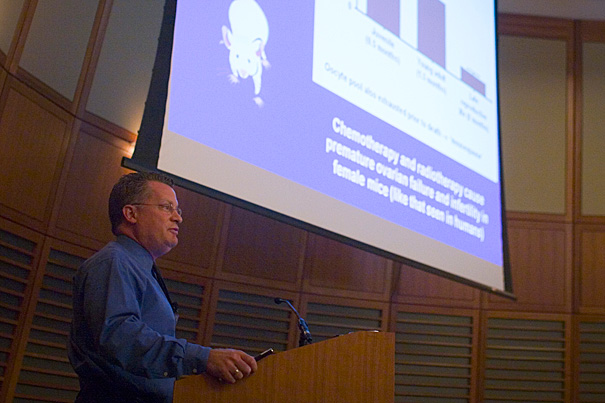Health
-

Break in the case for long COVID investigators
Research highlighting chronic inflammation opens path to treating illness that affects millions of Americans

-

The problem with the school smartphone debate
Study finds most districts already regulate devices. Is the real issue enforcement?

-

Just who gets a say at FDA public drug-approval hearings?
New research shows negative voices are relatively rare in drug approval hearings.
-

Your digital twin might save your life
AI, statistics offer new possibilities for personalized medicine
-

Time to legalize psychedelics?
Campus debate weighs therapeutic need vs. safety questions
-

How a toxin from the gut microbiome may help spark colorectal cancer
Findings suggest colibactin may be promising target for disease prevention

-
Improving maternal health globally
A new three-year, $12 million grant from the Bill & Melinda Gates Foundation will support a Harvard School of Public Health effort to significantly improve maternal health in developing countries.

-
Disrupting a cancer gene
Scientists at Harvard-affiliated Dana-Farber Cancer Institute have successfully disrupted the function of a cancer gene involved in the formation of most human tumors by tampering with the gene’s “on” switch and growth signals, rather than targeting the gene itself.
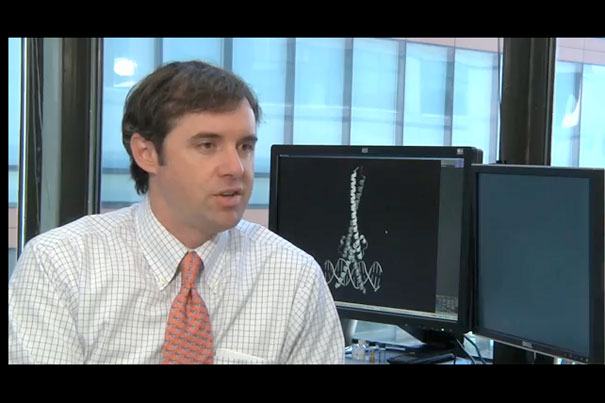
-
Giving hybrids some respect
Harvard researchers have used genetic analysis to confirm that the Appalachian tiger swallowtail butterfly arose through hybridization of two other species, the Canadian and Eastern tiger swallowtails, highlighting a rare case of speciation through hybridization in animals.
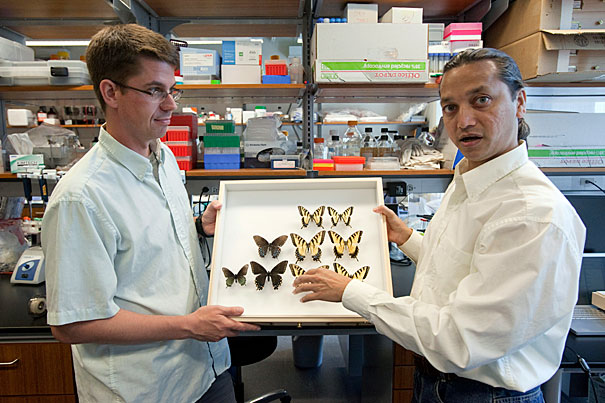
-
Economic impact of living with a smoker
Children who live in households where they are exposed to tobacco smoke miss more days of school than do children living in smoke-free homes, a new nationwide study confirms.

-
Advances in type 2 diabetes drugs
Researchers from Harvard-affiliated Dana-Farber Cancer Institute and the Scripps Research Institute in Jupiter, Fla., report they have created prototype drugs having powerful anti-diabetic effects, yet apparently free — at least in mice — of dangerous side effects plaguing some current diabetes medications.
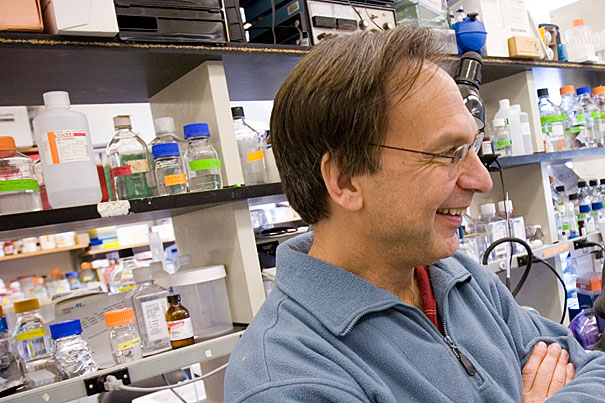
-
First lizard genome sequenced
The green anole lizard is an agile and active creature, and so are elements of its genome. This genomic agility and other new clues have emerged from the full sequencing of the lizard’s genome and may offer insights into how the genomes of humans, mammals, and their reptilian counterparts have evolved since mammals and reptiles parted ways 320 million years ago.

-
From skin cells to motor neurons
Harvard stem cell researchers have succeeded in reprogramming adult mouse skin cells directly into the type of motor neurons damaged in amyotrophic lateral sclerosis, best known as Lou Gehrig’s disease, and spinal muscular atrophy.

-
Tax on sugary drinks?
The global obesity epidemic has been escalating for decades, yet long-term prevention efforts have barely begun and are inadequate, according to a new paper from international public health experts published in the Aug. 25 issue of the journal The Lancet.

-
Attacking Ebola
Two Harvard-led research teams report identifying a critical protein that Ebola virus exploits to cause deadly infections. The protein target is an essential element through which the virus enters living cells to cause disease.
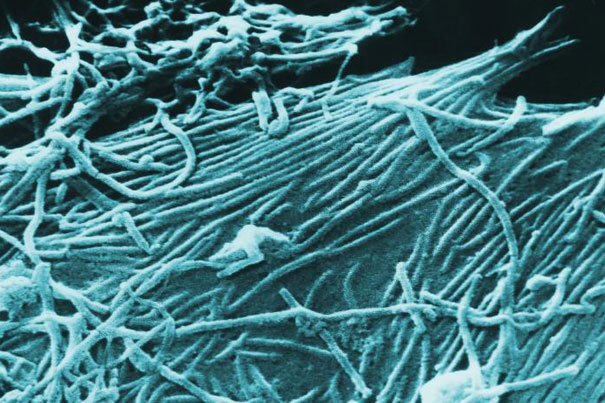
-
The efficient caveman cook
Harvard researchers say the rise of cooking likely occurred more than 1.9 million years ago and bestowed on human ancestors a gift of time in the form of hours each day not spent eating.
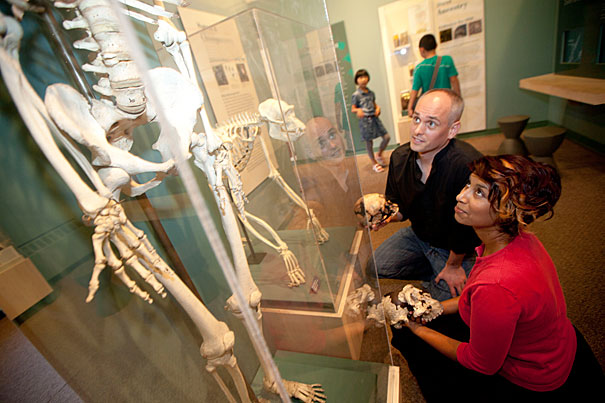
-
Detecting heart-valve infection
A novel imaging probe developed by a Harvard-led team of investigators at Massachusetts General Hospital may make it possible to diagnose accurately a dangerous infection of the heart valves.
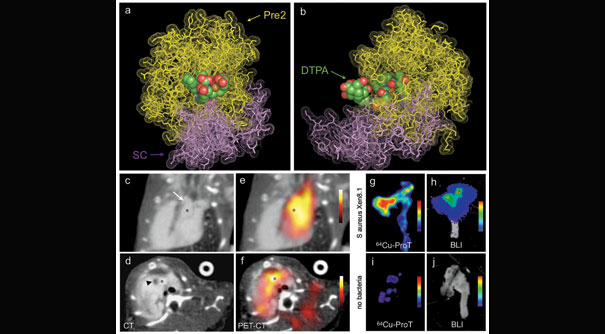
-
Cancer stem cells made, not born
In cancer, tumors aren’t uniform: they are more like complex societies, each with a unique balance of cancer cell types playing different roles. Understanding this “social structure” of tumors is critical for treatment decisions in the clinic because different cell types may be sensitive to different drugs.

-
Too much variety
More choices for Medicare beneficiaries may not always be better, according to Harvard Medical School research.

-
Clearer view of Parkinson’s
A new study finds that a protein key to Parkinson’s disease has likely been mischaracterized. The protein, alpha-synuclein, appears to have a radically different structure in healthy cells than previously thought, challenging existing disease paradigms and suggesting a new therapeutic approach.
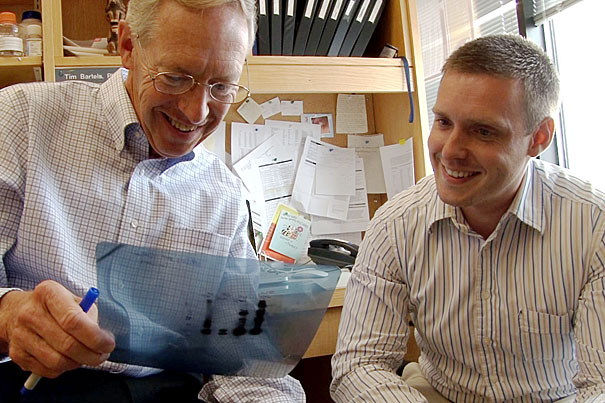
-
Alien world is blacker than coal
Imagine a giant world like Jupiter, but more alien than any planet in our solar system. Instead of displaying gleaming clouds colored white and salmon, this world is darker than the blackest lump of coal. It glows only with a feeble red light like a stove’s electric burner — the result of scorching heat from a sun just 3 million miles away.

-
What’s behind the predictably loopy gut
Between conception and birth, the human gut grows more than two meters long, looping and coiling within the tiny abdomen. Within a given species, the developing vertebrate gut always loops into the same formation — however, until now, it has not been clear why.

-
Risky eating
A new study by Harvard School of Public Health researchers finds a strong association between the consumption of red meat — particularly when the meat is processed — and an increased risk of type 2 diabetes.

-
Sleep, oxygen, and dementia
Harvard research finds that sleep-disordered breathing is associated with a higher risk of cognitive impairment in older women.

-
Strength in numbers
Harvard researchers have created an analogue of what they think the first multicellular cooperation might have looked like, showing that yeast cells — in an environment that requires them to work for their food — grow and reproduce better in multicellular clumps than singly.
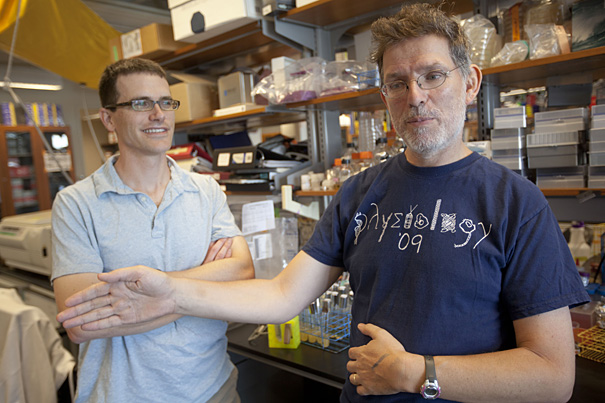
-
Grant backs study of cancer-obesity link
The Harvard School of Public Health has been awarded a five-year, $10 million grant from the National Cancer Institute for a new research center to study the relationship between obesity and cancer.

-
HSPH receives $14.1M grant
Harvard School of Public Health (HSPH) has been awarded a $14.1 million, four-year grant from the Bill & Melinda Gates Foundation to test the effectiveness of an innovative checklist-based childbirth safety program in reducing deaths and improving outcomes of mothers and infants in 120 hospitals in India.

-
Hard fight ahead
Experts participating in an HSPH event expressed hope for rapid progress against Alzheimer’s disease even as they acknowledged that there’s little medical science can do today to help patients.
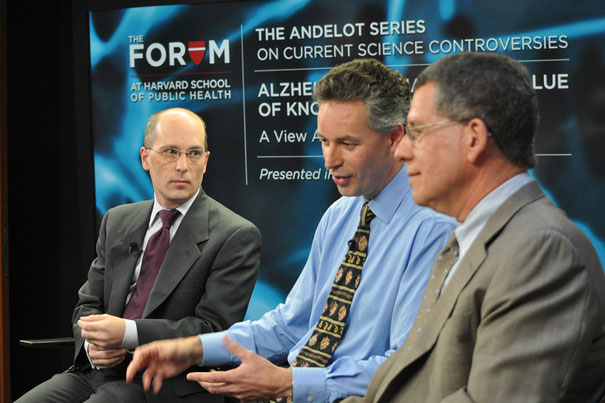
-
New approach to traumatic brain injuries
Bioengineers at Harvard have, for the first time, explained how the blast of an exploding bomb can translate into subtly disastrous injuries in the nerve cells and blood vessels of the brain.
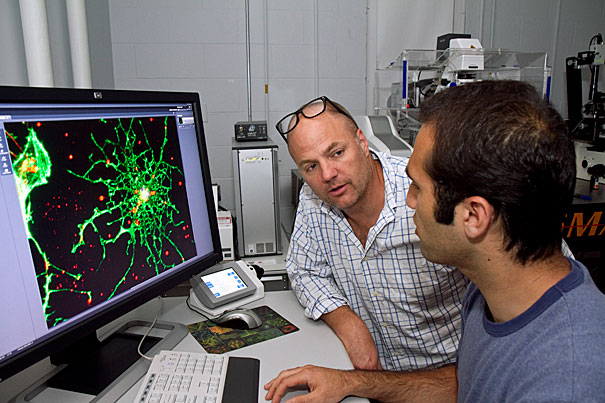
-
New territory
A consortium led by scientists at the University of Oxford and Harvard Medical School has constructed the world’s most detailed genetic map, built from data from 30,000 African-Americans. The researchers assert that this is the most accurate and highest resolution genetic map yet.

-
Predicting cancer’s spread
Harvard researchers at Dana-Farber Cancer Institute (DFCI) have identified a number of cancer genes that endow melanoma tumors with the ability to metastasize, making it possible to predict whether the tumors are likely to spread.
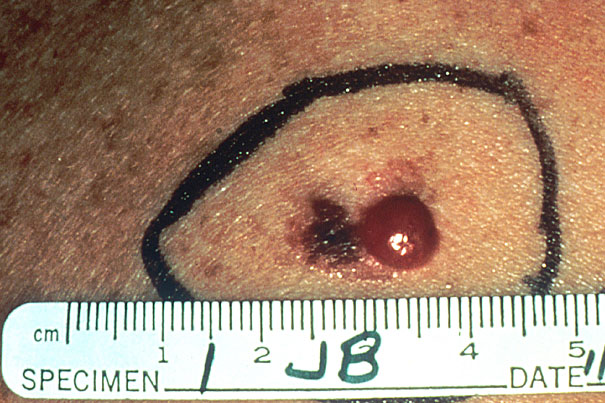
-
Editing the genome
Treating the chromosome as both an editable and an evolvable template, researchers have demonstrated methods to rewrite a cell’s genome through powerful new tools for biotechnology, energy, and agriculture.
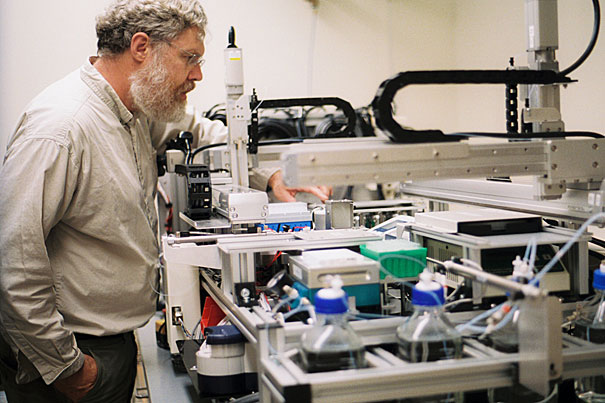
-
When to alter cancer screenings
Not only is it important for physicians to be fully informed about any cancer in their patients’ family histories, but a massive new study led by a Harvard researcher at Massachusetts General Hospital (MGH) and a University of California scientist indicates that it is important to update that history whenever there are contemporaneous changes in it.
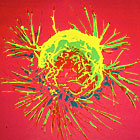
-
Finding ovarian cancer’s vulnerabilities
In their largest and most comprehensive effort to date, researchers from the Broad Institute of Harvard and MIT and Dana-Farber Cancer Institute, a Harvard affiliate, examined cells from more than 100 tumors, including 25 ovarian cancer tumors, to unearth the genes upon which cancers depend. They call it Project Achilles.

-
When estrogen isn’t the culprit
Although it sounds like a case of gender confusion on a molecular scale, the male hormone androgen spurs the growth of some breast tumors in women. In a new study, Harvard scientists at Dana-Farber Cancer Institute provide the first details of the cancer cell machinery that carries out the hormone’s relentless growth orders.

-
Cut calories, increase egg quality
A strategy that has been shown to reduce age-related health problems in several animal studies may also combat a major cause of age-associated infertility and birth defects.
